#moviegoer
Text

5 notes
·
View notes
Text
““The Moviegoer” isn’t really about movies, and yet the title remains unexpectedly apt, just as it was when the novel, published in 1961, became a surprise winner of the National Book Award and made a sudden Southern eminence of its author, Walker Percy, a nonpracticing physician and self-taught philosopher in early middle age. It’s apt because it moves the novel (and our expectations for the novel) out of the South. It intimates that this novel, set in New Orleans, the region’s most storied city, isn’t about history or legacy, isn’t about place at all: it’s about how we see things—a novel of perception and sensibility, dealing with the search for authenticity in a scripted, stylized, mediated world.
Percy’s contemporary Flannery O’Connor characterized the literature of the American South at midcentury as set against the typical. In O’Connor’s view, there was no typical Southern novel, and that was a good thing; for her, the best Southern novel was atypical just as life in the South (in her time, as she saw it) was atypical of American life as a whole. The Southern novel she celebrated takes unusual, extreme, even grotesque, behavior as its starting point. Such a novel is rooted, she explained, in “some experience which we are not accustomed to observe every day, or which the ordinary man may never experience in his ordinary life. . . . Yet the characters have an inner coherence, if not always a coherence to their social framework. Their fictional qualities lean away from typical social patterns, toward mystery and the unexpected.”
“As I Lay Dying,” and “Wise Blood,” and later “A Confederacy of Dunces” and “The Color Purple” and “Fishboy”: these novels are fiercely atypical. But the originality of “The Moviegoer” is more paradoxical than theirs. Unlike the novels of the South that have something of the heightened quality that came to be called gothic, “The Moviegoer” becomes atypical through its scrutiny of the typical. It takes ordinary experience—“everydayness,” Binx calls it—and makes it the subject of fitful philosophical inquiry. It promises a typical moviegoer but delivers the inimitable Binx. It calls literary categories to mind by leaning away from them.
(…)
It’s a Catholic novel (the main action takes place in the days before Ash Wednesday), and yet one whose protagonist considers himself not much of a Catholic at all, but a skeptic whose “unbelief was invincible from the beginning”—who tells us, “I have only to hear the word God and a curtain comes down in my head.”
It’s a distinctly American novel, but one that stands apart from the main line from Hawthorne to Twain to James and Wharton and then to Fitzgerald, Hemingway, and Cather—the double helix of innocents at home and innocents abroad. Its key antecedents are the European existentialists Kierkegaard, Sartre, and Camus—the latter two of whom were also important for Ralph Ellison, who drew inspiration from them a decade before Percy, in writing “Invisible Man.”
It’s a novel of the search—“the pilgrim’s search outside himself, rather than the guru’s search within,” Percy liked to say—but without the usual signposting. There’s no journey to a strange culture, no savvy guide, no sloughing off of one self and the taking on of another; no raft and river, no feasting or fasting, no new world at the end of the journey. There’s just the “everydayness” of Binx’s life in New Orleans and the slight diversion of an overnight train ride.
It’s a coming-of-age novel, but one whose protagonist is nearly twice the age of Huck Finn and Holden Caulfield. Binx is about to turn thirty, an age by which American men of midcentury were expected to have settled into their adult lives. He is a college graduate, a veteran, a stocks-and-bonds broker—and yet his self is “left over,” as Percy put it in an essay. Nearing thirty, Binx is gripped by “the possibility of the search” as if for the first time. The novel was a surprise even to its author. As he wrote it, Percy, like Binx, was forced out of himself and compelled to court, as O’Connor wrote, “mystery and the unexpected” as never before.
(…)
Published in 1961, lightly publicized, little noticed, “The Moviegoer” found its way to A. J. Liebling, The New Yorker writer, who had written a biography of the Louisiana governor Earl Long and was steeped in the culture and flavor of New Orleans. Liebling shared the novel with his wife, the novelist Jean Stafford, who was a judge for the National Book Awards that year, and the novel, not formally nominated, was put up for consideration. It was a strong year for American fiction: J. D. Salinger’s “Franny and Zooey,” Joseph Heller’s “Catch-22,” William Maxwell’s “The Château,” and Isaac Bashevis Singer’s “The Spinoza of Market Street” were all nominated. The award went to “The Moviegoer.” Percy, accepting the prize in New York, framed the novel in terms he had explored in his essays (and which he would develop for the rest of his career): the sickness of modern Western society, the loss of the sense of the self, the role of the writer as diagnostician. Concluding, he made his most vital point indirectly: “In short, the book attempts a modest restatement of the Judeo-Christian notion that man is more than an organism in an environment, more than an integrated personality, more even than a mature and creative individual, as the phrase goes. He is a wayfarer and a pilgrim.”
Percy was a late starter as a novelist, and Binx Bolling is late coming of age, but Percy’s novel of Binx’s coming of age was ahead of its time. With its slack and offhand protagonist, its present-tense narration, its effortless mix of informal speech, images from popular culture, and frank ruminations on the meaning of life, “The Moviegoer” is, in my estimation, the first work of what we call contemporary American fiction, the earliest novel to render a set of circumstances and an outlook that still feel recognizably ours.
Faulkner once characterized his approach to writing as “oratory out of solitude.” Of this approach Percy made a new thing altogether. The solitude of “The Moviegoer” isn’t the solitude of a rebel or an independent, but that of a person who is alone in a crowd—in a movie theatre or on a sidewalk in the French Quarter. The oratory in the book isn’t that of the Bible or of Stoic philosophy or of a Russian novel but of a voice-over—the present-tense monologue of the person who does not tell a story so much as self-consciously offer a running commentary on life as it passes before his eyes.
(…)
And yet for all that, “The Moviegoer” seems to describe the way we live now, for its affectless protagonist observes a society whose every aspect seems mediated, contrived, statistically anticipated, manipulated in advance, so that direct experience of life can seem as elusive as the experience of God.
(…)
Southern, Catholic, ironic, oblique: “The Moviegoer” doesn’t add up, quite. What is it about? What has come of Binx’s search? What has prompted him to settle down with Kate and embrace everydayness with quasi-religious devotion? “It is impossible to say,” Binx remarks in the last line of the novel proper. It is impossible to say. And yet “The Moviegoer,” like its central character, has an inner coherence. Its take on everydayness has the quality of wonder that is the novel’s true subject. It opens out onto some larger mystery, one that we, no less than he, are still trying to solve.”
“Melville began Moby-Dick around the time Blood Meridian is set, in the violent, chaotic years after the United States annexed Texas and invaded Mexico, taking most of its northern territory and bringing its western border to the Pacific Ocean. Both novels trade on the metaphysics of nature, violence, commerce, war, and law. Both, in other words, are parables of the US empire. For McCarthy, like Melville, empire meant movement, an expectation of limitlessness, and both demonstrated a skill at describing men and animals moving through vastness, through landscapes without end.
(…)
But the movement in Blood Meridian is different. McCarthy knows that the United States made and unmade itself not on the water but within the borderlands it shared with Mexico. Unlike the Pequod, Blood Meridian’s scalping Glanton Gang turns in circles. Its men cross and recross the same desert sands; they pass the same bluffs, gullies, rivers, and creosote bushes. Victory over Mexico didn’t, at least for this group of killers, open the world. Rather, the vastness of the West closes in on them. They move east to west, then west to east, and as they do their savagery intensifies, taking on its own momentum detached from the economic logic of bounty hunting, less sadistic than naturalistic, as the men become almost indistinguishable from the landscape.
(…)
McCarthy published Blood Meridian in 1985, when Ronald Reagan, after the horrors of Vietnam, Laos, Cambodia, and Indonesia, launched a new round of carnage in Central America, Afghanistan, Mozambique, and Angola. McCarthy mostly guarded his political opinions, though after 9/11 he seemed to have a rather conventional understanding of geopolitics and the United States’ role in the world; he accepted the fact that the War on Terror was a civilizational war.
Whatever his opinions, McCarthy is more unforgiving than Melville when it comes to writing about US empire. The relentless violence in Blood Meridian and his other books—the hacking of limbs, the dead babies, the castrated genitalia—leaves little to the imagination.
There’s an anti-humanism at play in McCarthy, often expressed in the one-dimensionality of his protagonists. In Moby-Dick, Ahab is “possessed by all the fallen angels.” He’s an archetype: Milton’s rebel hurling defiance at the vaults of heaven, Shakespeare’s Macbeth and Lear. His vengeful rebellion against the natural order of things—not least forsaking his economic duty to his masters—can be interpreted in mythological terms, fate punishing his hubris. Yet Melville, anticipating Freud, rakes over his fears, anguishes, and desires, probing Ahab’s “darker, deeper part.” Ahab’s psyche ultimately remains impenetrable (as do all of ours) and his motives subject to debate, yet he’s a very human obsessive.
Not so with his counterpart in Blood Meridian. Judge Holden, or simply “the judge,” is a murderous, erudite, cultured, dancing polyglot and pedophile. He is a character built more from ideas than drives, a mash-up of Nietzsche and Spengler, pre-Freudian, more premise than person. When read with the novel’s setting in mind—as a story of men dispatched by Mexican and Texan officials to kill as many Indigenous people as possible to open the conquered territory to settlement—the judge’s endless speechifying elevates the violence of empire into ideology and weaves the gang’s cruelty into the fabric of existence. “War is the truest form of divination,” the judge intones. “It is the testing of one’s will and the will of another within that larger will which because it binds them is therefore forced to select. War is the ultimate game because war is at last a forcing of unity of existence. War is god.” Ahab, lost in his mind’s maze, would never say anything so declarative, so detached from his passions. Yet no Shakespearean doubt, no Freudian ambivalence clouds the judge’s certainty, no more than it would the work of the property surveyors who began to transfer Mexican and Native American land to US settlers.
(…)
Hairless, large, fleshy, with dull, tallowed skin: The judge is Marlon Brando’s Kurtz, an intertextual lineage that connects the horrors from the Mexican borderland to Southeast Asia. Apocalypse Now! premiered as McCarthy was writing Blood Meridian, with Chamberlain’s centuries-old description offering an uncanny model for both. The movie, its director Francis Coppola once said, is “not about Vietnam. It is Vietnam…. Little by little we went insane,” the “we” being both the film’s crew running wild in the Philippines (its production location) and the United States running wild in the world.
One could say the same about Blood Meridian: that it isn’t about the terror that followed the United States’ taking of northern Mexico. It is the terror, overwhelming the senses with suppurating images and inflamed language, forcing readers to touch the viscera, to feel the judge’s white-whale flesh, to be disgusted by his depravity as he rapes and murders children. And it is faithful to history, for the historical sources McCarthy based the book on are filled with grotesque scenes of, as one example, a regiment of Arkansas volunteers herding their victims into a cave and “yelling like fiends, while on the rocky floor lay over twenty Mexicans, dead and dying in pools of blood, while women and children were clinging to the knees of the murderers and shrieking for mercy.”
Blood Meridian is often described as an anti-western, an effort to desanctify Manifest Destiny. Still, the novel’s violence makes it hard to mark out where McCarthy’s pessimism ends and the judge’s philosophy begins. McCarthy, we can presume, based on his life and work, distrusted ideologies of progress and the self-regard of American exceptionalism, or what Melville called “vile liberty,” an idea of freedom based on extreme individualism with “reverence” for “naught”: not for nature and not for others. McCarthy too has the Glanton Gang harmonizing the individual and the group, echoing Melville when he writes that its men were “federated” in their work—not cheerily along a keel, but more like prisoners bound tight “with invisible wires of vigilance.” There’s no eros in Blood Meridian. Thanatos rules. Sex is rape, and rape is death.
Melville transmuted death into life in Moby-Dick. He has a coffin save Ishmael, the only survivor of the stoved Pequod. McCarthy, at the end of Blood Meridian, stands that coffin upright and turns it into an outhouse, the scene of a confusingly told finale in which the judge apparently rapes and murders the only character in the novel close to being moral, the kid. By book’s end, the violence, however faithful to real events, has become so omnipotent and omnipresent that it escapes the mundane motives that drive nations to wage war, to expand, to establish control over their hinterlands. The judge has become a supernatural demon, the avatar of a re-mythologized empire. Ahab, all too human, dies. The judge lives on: “He never sleeps, the judge. He is dancing, dancing. He says that he will never die.”
Between the publication of Moby-Dick and that of Blood Meridian a lot happened to account for the bleakness of McCarthy’s moral landscape. “Mai Lai burns again and again in the map of my mind,” the Bangladeshi poet Shamsur Rahman wrote in 1971, a lament for the Nixon-and-Kissinger-enabled genocide then taking place in his own homeland. McCarthy continued to build on Blood Meridian’s themes in his subsequent border trilogy: All the Pretty Horses, The Crossing, and Cities of the Plains. Then, three years after the US invasion of Iraq, McCarthy published The Road. We don’t know the cause of the novel’s apocalypse, whether it was out-of-control technology, fossil fuels, nuclear war, or consumer waste that left only a handful of desperate humans alive. McCarthy doesn’t say, and he doesn’t have to. It’s any and all of those things, expressed in the novel’s disdain for the items capitalism left strewn along the side of the road, “things abandoned long ago by pilgrims enroute to their several and collective deaths.”
McCarthy demonstrated how the frontier wasn’t an incubator of democratic equality but a place of unrelenting pain, cruelty, and suffering. He rubbed away the veneer of Manifest Destiny, revealing US nationalism and empire to be nothing but the right of conquest updated for the democratic age. Let’s admire the wonder of his writing, even though to my ear it often sounded strained, its artifice apparent, unlike the manic, ramshackle Melville, who really did seem to be handpicked by the gods of old—by Milton, Shakespeare, Mary Shelley, and others—to speak for them. McCarthy, though, knew how to name what has been, or will soon be, lost. The last paragraph of The Road, set on an earth stripped of its biomass, is a stunning summation of being and nothingness, of things that once had existed written about as if they still did:
Once there were brook trouts in the streams in the mountains. You could see them standing in the amber current where the white edges of their fins wimpled softly in the flow. They smelled of moss in your hand. Polished and muscular and torsional. On their backs were vermiculate patterns that were maps of the world in its becoming. Maps and mazes. Of a thing which could not be put back. Not be made right again. In the deep glens where they lived all things were older than man and they hummed of mystery.
We should, though, resist McCarthy’s punishing gnostic nihilism, and a pessimism that can only result in moral idiocy, in circle dances that go nowhere, like the Glanton Gang, where existence is original sin and the racial terror inherent in empire building, and the land grubbing that comes with it, is but part of the sublime.”
#walker percy#moviegoer#cormac mccarthy#blood meridian#literature#american literature#southern literature#southern gothic#books#moby dick#herman melville#flannery o'connor
9 notes
·
View notes
Text
At the movies with mom and my nephews 🎬📽️

#wonka#willywonka#movie#movies#atthemovies#movietime#movieday#moviegoer#cinephile#movielover#filmlover#film#wonkamovie#willy wonka and the chocolate factory
2 notes
·
View notes
Text
Right? Now that I think back to what has easily been one of my all-time favorite movies, I'm not sure if the struggle is the same for me. In essence, I discovered and loved it when my life was in complete turmoil, and while I still agree that "the system" is the problem, the "solution" feels too much like a modern Conservative incel army solution.
In short, I loved (and still love so much about) Fight Club, but modern times have kinda ruined it. Regardless, it's one of the best movies out there IMHO, and the story and acting and twist are still spectacular.
0 notes
Text
Movie Theater Etiquette Preferences (the opinion of one AMC worker*) + explanations!
DONT'S:
Don't come up to a register unless you are called/gestured to: This one is pretty simple! Every concessionist has a different style in which they call you up. I like to verbally say that I can help, as well as waving/raising my hand. Some of my coworkers make eye contact or some other physical indicator. WHY?: There are many reasons that coming up before you are called can cause issues. Sometimes the person behind the counter is not available to help, such as management doing refunds or fixing kitchen orders. The worker may also be clocking off of their shift or going on break. There are also many things we need to be keeping track of, such as stock and popcorn, that require us to step away. The person might not even be a concessionist, and was just helping out for a short while! Finally, it can cause confusion. The other day a customer walked up to a register not in used and then was confused when I called the next person behind them, since I assumed they were being helped by someone who had run to grab something.
Don't be a creep: One of the most straightforward rules, but it's often disregarded. Just because we are working does not mean you are entitled to anything about us, or that we are looking for your attention.
Don't come up to non-line areas: Our AMC has a corner of our concessions counter off to the side behind our drink fridge that you can theoretically access as a customer or a worker. This area is not for customer interaction! If you'd like to get service, no matter how small of an issue, come to the front in the line area and/or get into line. WHY?: When we pass by that corner, we are often busy with another task. Having to stop to refill your popcorn, get you a condiment, etc. can be disruptive to not only our job but often other customer's service. For example, it's tempting to get our attention from off to the side if there is a crowd at concessions and you want a refill. However, we are usually assisting another customer, or calling from the lines. Especially if it's busy, make sure that you're waiting your turn to keep everything fair. You could also be interrupting the job of a non-concessionist, like the food runners, who are just grabbing something. In that case, they have an entire building to service (often alone) and are already extremely busy (and have gloves on, so they don't want to touch dirty things for you!).
Don't let your personal opinions interfere with our interaction: Make sure that your negative opinions stay inside! If you don't like someone's mask/hair/etc, there's no need to comment on it. Odds are, it was chosen for a reason that will not be shaken by a random stranger. WHY?: All this does is add hostility to the worker's day and cause an uncomfortable situation. We are not trying to escalate our interactions (in fact, our theater trained us all in de-escalation), but it's hard to find an appropriate response to a personal attack. If anything we were wearing was against theater policy, it would have been addressed by the management. If it's nothing that you think is against rules, you just don't like, you don't have to comment! Just showing up to work is not inviting your opinion.
Don't blame us for policies/technology: Make sure you understand how little power the everyday crew member has on policy decisions or app/website construction. WHY?: This is more of a personal preference, but oftentimes even jokes leave me feeling like I should apologize for the corporation I have no control over. We don't make rules on IDs, or how our points system works. Understand that we are working under largely the same restraints that you are, and that we are helping as much as we can within that framework.
Don't come up as a group if you're ordering separately: If you are paying for an entire group, feel free to come up together. If you are with your friends and each of you are paying separately, come up when called and stay on your own/with the payment group. WHY?: We have specific pull ratios for our lines. It is unfair for 5 people to be pulled from one line on accident. This also relates to the first DON'T about not coming up when called. Situations may arise where the concessionist was not aware of how many interactions they were signing up for when they called over a group.
Don't panic if your food isn't out to the minute: When you order ahead, your food pops up on our screens 10-15 minutes before your 'scheduled' delivery time. If your delivery is scheduled for 6:00 pm and it is 6:05 pm, don't worry! We are most likely on the way with your order. Similarly, if it was extremely busy when you were ordering at concessions, your food may take 20-25 minutes to be delivered to you. If it is expected to take any longer, the concessionist you ordered from will often mention the new expected wait time. WHY?: You may be missing your movie coming up to see us. If you are alone, we may be delivering the food while you come up, and it will be a few minutes before we try again if you are not there, especially when busy. *If it has been 30 minutes or more, feel free to come up to concessions and ask about your order. Make sure you're asking a concessionist at the counter, as they will be the only ones able to check on your order, and not another employee at box office or ushering.
DO'S:
Do decide who is ordering: Make sure that going into a concessions order you know who will be ordering, or that all of you will order for yourself. WHY?: If you are jumping back and forth between discussing/deciding what to order and actually ordering, it's easy for concessionists to lose track of what you are actually getting and what you are considering. If you have a large group order, consider asking the concessionist to review the order before it proceeds, and don't get upset at any mix-up. Deciding ahead of time that you will either take full responsibility of the order or everyone will order their own items reduces confusion, missed items, and double ordering. I have often had to ping-pong between parents, families, friends, etc who are contradicting each other throughout the entire order.
Do project and speak clearly (and listen!): Make sure your face is physically turned towards the concessionist when you are talking to us. Be close to the counter and feel free to stop the conversation to move back and look at the menu. (Bonus: if you are engaging with the concessionist, make sure you are listening as much as possible! It's not always viable, but try to avoid side conversations with party members, even when you think we aren't talking to you.) WHY?: It is often loud behind concessions, and if you are turned to your party member when you are ordering it can seem like you are just consulting them rather than giving a request. (If I am standing and looking at you, I may be talking to you. This might include vital instructions for your order, or questions you need to answer.)
Do know your seat number if you are ordering food: Unless you are not currently seeing a movie, your food needs to be delivered to your seat (no fee at our location). Make sure that you have your ticket or know your auditorium/seat number before ordering in order to save time.
Do make sure you're in the right line: When you are walking to our lines, look and see whether you are a paid member or not. Please use the appropriate line. WHY?: We have a pull ratio that favors paid members. It is unfair to those who are paying for priority for you to get those benefits for free by going in the paid member line.
Do have your ID if applicable: If you are an A-List member, are seeing an R-rated movie, or are ordering alcohol, you must have a valid ID with your name, picture, and birth date. WHY?: For our A-List membership, this is to protect you from identity fraud or scams, as you are paying monthly and getting free movies. For R-rated movies, make sure all party members are 17+ with valid ID, or have 1+ party member 21 or older with a valid ID that is staying for the movie. This is a potentially job-ending matter for employees, and you will be turned away from getting tickets or coming in. Please refer back to to the DON'T about blaming us for policy-- from our perspective, you seeing one movie is not worth our job. For alcohol, we have to card every single person, no matter how 'obviously over 21' you are. Please refer back to the DON'T about blaming us for policy.
Thank you for reading!
*These are only my opinions and are tailored to an AMC Dine-In audience. These opinions are not an official statement from AMC or my specific location, and are my own.
#movie theater worker#amc#customer service#customer service worker#psa#movie theater psa#mine#textpost#customer service psa#customer service etiquette#movie theater etiquette#amc a list#amc premiere#amc insider#amc theaters#amc dine in#dine in etiquette#movie theater customers#customers#customer serviceblr#amcblr#movieblr#moviegoerblr#moviegoer#cinema#cinema etiquette#film etiquette#theater#filmblr#cinemablr
0 notes
Text
Florida moviegoer beaten after asking couple to move from his reserved, VIP seats in 'callous' attack
A simple favor to ask a moviegoer to sit in his assigned seat turned into an all-out brawl at a Florida movie theater — with the incident being captured on camera.
The Broward County Sheriff’s Office released cellphone video of the altercation, which captured 27-year-old Jesse Montez Thorton II violently attacking 63-year-old Marc Cohen at the AMC theater in Pompano Beach on July 10.
Cellphone…

View On WordPress
#‘callous#&8216;move#after#asking#attack.#beaten#blog#couple#florida#from#his#moviegoer#reserved#seats#vip
0 notes
Text

#cinema#films#movienight#filmfan#hollywood#blockbuster#filmfestival#movietime#movieaddict#moviereview#movierecommendation#moviegoer#cinematography#movietheater#moviescene#moviecollection#movielovers#moviepremiere#moviemaker#moviesarelife#filmbuff#moviemarathon#movienightout#moviequote#movieposters#movieproduction#movierelease#movietrailers
0 notes
Text








Get To Know Me ✧ Favorite Horror Films ↳ MIDSOMMAR - Dir. Ari Aster (2019)
#midsommar#midsommaredit#horroredit#dailycolorfulgifs#dani ardor#ari aster#florence pugh#filmedit#filmgifs#dailyflicks#fyeahmovies#chewieblog#moviegoing#userfilm#cinemapix#cinematicsource#*#*midsommar
442 notes
·
View notes
Text
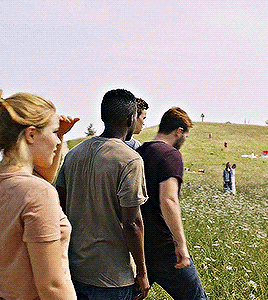
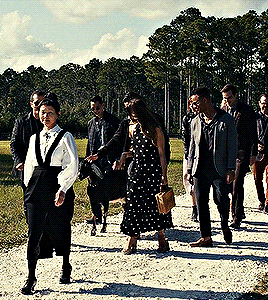

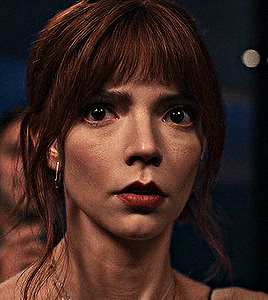
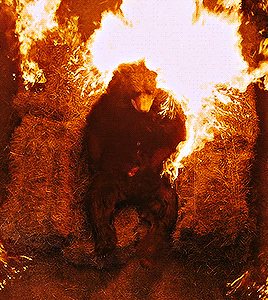
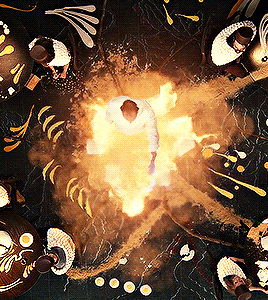

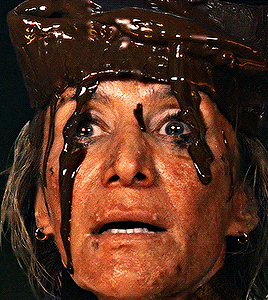

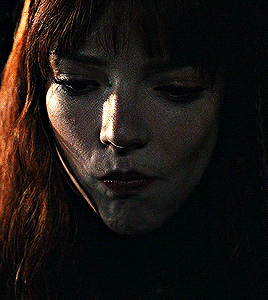
MIDSOMMAR. (2019) / THE MENU. (2022)
#*#hopefully this makes sense lmao.#the menu#midsommar#themenuedit#midsommaredit#filmedit#filmgifs#dailyflicks#fyeahmovies#chewieblog#moviegoing#userfilm#cinemapix#cinematicsource#userbbelcher#useroptional
5K notes
·
View notes
Text
Also idk maybe it was too subtle but. when oppenheimers wife takes him by the shoulders and says, “stop trying to make people pity you for the sins you committed” like. I just kind of figured that was a pretty explicit indictment of his actions and makes me struggle to take the “Oppenheimer is just a movie about a sad white mans feelings” arguments in good faith.
#oppenheimer#idk man I don’t wanna discount the feelings of Japanese people or native people on the whole thing#but I feel like this movies does it’s due diligence in reminding you Oppenheimer was in fact problematique#And a general moviegoing audience’s potential failure to think critically about the atomic bomb isn’t the fault of the movie
2K notes
·
View notes
Text

2 notes
·
View notes
Text

“I am in love with Sharon Kincaid. She knows nothing of this, I think. I have not asked her for a date nor even been specially friendly. On the contrary: I have been aloof and correct as a Nazi officer in occupied Paris.” - Walker Percy, ‘The Moviegoer’ (1961) [p. 61]
1 note
·
View note
Text
Watching The Nightmare Before Christmas at the movies on this rainy day 🎬📽️💀🎅

#at the movies#the nightmare before christmas#nightmare before christmas#cinema#movie theater#film#filmlover#movielover#moviebuff#moviegoer#rainyday
2 notes
·
View notes
Text




JIMMY "B-RABBIT" AND ALEX
8 Mile (2002) dir. Curtis Hanson
#userheidikins#8 mile#eminem#brittany murphy#tvandfilm#userrin#alielook#usertj#usergiu#underbetelgeuse#moviegoers#filmgifs
98 notes
·
View notes
Text
What is the nature of the search? you ask.
The search is what anyone would undertake if he were not sunk in the everydayness of his own life.
To become aware of the possibility of the search is to be onto something. Not to be onto something is to be in despair.
- The Moviegoer, Walker Percy
53 notes
·
View notes
